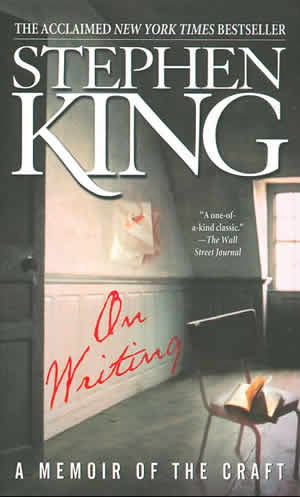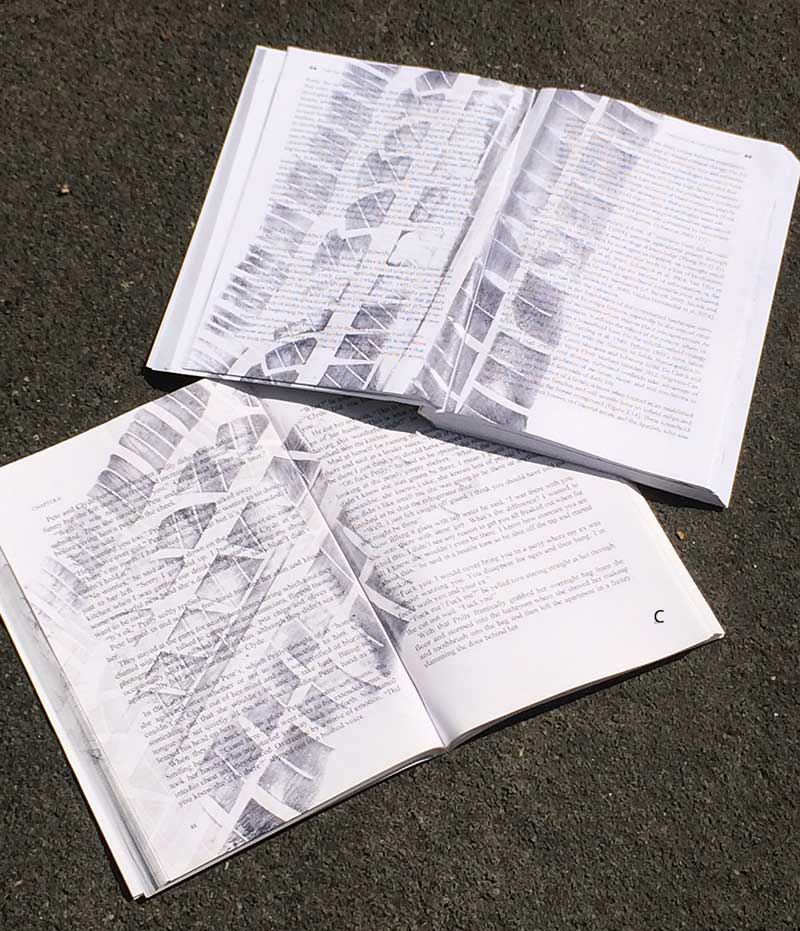


Mitch’s Blog
On Writing About On Writing
Wednesday, February 01, 2017
What should I read to become a better writer?
I give workshops on writing and publishing for academics, and that question inevitably comes up. Almost every time an academic mentions good books about writing, Stephen King’s On Writing is on the list. I’m not much of a King fan, the horror genre always seems to be trumped by real life. But maybe his writing about writing is different.
on the list. I’m not much of a King fan, the horror genre always seems to be trumped by real life. But maybe his writing about writing is different.
Each of my workshops requires handouts, and “Additional Resources” is always one of those. So, along with Nancy Mulvany’s book on indexing, Beth Luey’s guide to getting published, and various alphabetic style guides like MLA, APA, and CMS, a couple of good writing books are needed. For scholars, you can’t do much better than grabbing books by Harry Wolcott, Laurel Richardson, and Howie Becker. They’re all on my list. A year back, I read Anne Lamott’s Bird by Bird on a recommendation and fell in love with that one too. Before putting On Writing on that list, I figured it would be a responsible act to take a look at the book.
Green Apple Books in San Francisco’s Richmond District is a glutton’s paradise. Full of smart books and smart people. Just getting past the book carts guarding the front door is a struggle. The only question to ask when you enter is, what should your ceiling on purchases be today, in hopes that you keep it to no more than double whatever figure you decide. Last week, I figured I could get away cheaply by finding a used copy of King’s book. After all, it was published in 2001 and lives in many different paperback editions. I found a $5 mass market version inscribed “To my favorite writer!!! I love you. Mama” and managed to escape with only three others to accompany it in my book bag.
I read it over the weekend.
Contrary to the rave reviews I received from many sources, I was somewhat disappointed. The “here’s how you write” part was sandwiched between a lengthy youthful autobiography and the story of how writing helped him recover from an almost-fatal 1999 auto accident that was front page news at the time. Fair enough, I got to learn a lot about King’s personal struggles and some sense of why and how he became a writer. If you’re sending stories out to magazines while you’re still in high school and juggling school with working at a laundry on evenings and weekends, you’re unquestionably dedicated to your art. But the author’s recounting his admirable personal struggles didn’t further my desire to read about the horrible flesh-eating creatures that inhabit his books.
King himself admits that he struggled in trying to complete the book. It sat on his shelf for a couple of years half dressed, not really sure how to do its hair. Had he not been smashed by a rogue panel truck while walking along a Maine highway one Saturday and used the rewriting process as his therapy, the half-finished manuscript might still be languishing in a bottom desk drawer.
His suggestions about writing was where I spent most of my reading time. Truly, there were some good suggestions there from someone who really knows his stuff. Pulled my pen out and left  marks on many pages. Fortunately, the Son to whom this book was presented did not see fit to do the same. I envision that Son now works for a tech company in Foster City and writes in html.
marks on many pages. Fortunately, the Son to whom this book was presented did not see fit to do the same. I envision that Son now works for a tech company in Foster City and writes in html.
“You must not come lightly to the blank page….The adverb is not your friend… Read a lot and write a lot… [Write about] anything at all, as long as you tell the truth… Our lives are largely plotless… Description begins in the writer’s imagination, but should finish in the reader’s.” And so on. Good stuff from King.
Much of it echoes what I teach in my own publishing and writing workshops: write for an Ideal Reader, churn out 1000 words a day as a regular habit, separate the writing process from the editing one. Not sure I’m as comfortable with his assessment of publishers’ role in the process “there are people in the publishing world—more than a few, actually--- who would steal the pennies off a dead man’s eyes.”
He even has a section where he compares plot development to excavation, bound to stir the heart of any paleontologist or archaeologist: “Impossible to get the entire fossil out of the ground without a few breaks, and losses. To get even most of it, a shovel must give way to more delicate tools: airhose, palm-pick, perhaps even a toothbrush. Plot is a far bigger tool, the writer’s jackhammer. You can liberate a fossil from hard ground with a jackhammer, no argument there, but you know as well as I do that the jackhammer is going to break almost as much stuff as it liberates.”
Not everything is applicable to the academic writer, in fact parts are anathema. For a fiction writer, t he advice to start with a “what-if” and let it lead you through a story is golden. For a scholar, where your goal is not to entertain but to present a hypothesis or “theme,” as King calls them, the what-if question doesn’t work. Contrary to his advice, the scholar starts with her theme and works her story around it. It may well be that the two—good scholarship and good storytelling-- are incompatible over this point. I hope not. He also contends that your background research shouldn’t interfere with a good story— another difference between the novelist and the scholar. It’s the research that gives you the authority to write the story.
he advice to start with a “what-if” and let it lead you through a story is golden. For a scholar, where your goal is not to entertain but to present a hypothesis or “theme,” as King calls them, the what-if question doesn’t work. Contrary to his advice, the scholar starts with her theme and works her story around it. It may well be that the two—good scholarship and good storytelling-- are incompatible over this point. I hope not. He also contends that your background research shouldn’t interfere with a good story— another difference between the novelist and the scholar. It’s the research that gives you the authority to write the story.
Also amusing are his references to writing on legal pads, mailing manuscripts to agents, and storing things on floppy disks, all artifacts of the last century. It makes me worry for the longevity of my own book of writing and publishing advice to see how the world has changed.
So, what’s the verdict? Add this book to the Additional Resources list? Or instead use one of the handful of websites that condenses his advice down to Stephen King’s Top 20 Rules for Writers. Leaning toward the latter, but need assurance that he won’t send Cujo after me if I do.
Back to Scholarly Roadkill Blog
Scholarly Roadside Service
ABOUT
Who We Are
What We Do
SERVICES
Help Getting Your Book Published
Help Getting Published in Journals
Help with Your Academic Writing
Help Scholarly Organizations Who Publish
Help Your Professional Development Through Workshops
Help Academic Organizations with Program Development
CLIENTS
List of Clients
What They Say About Us
RESOURCES
Online Help
Important Links
Fun Stuff About Academic Life


